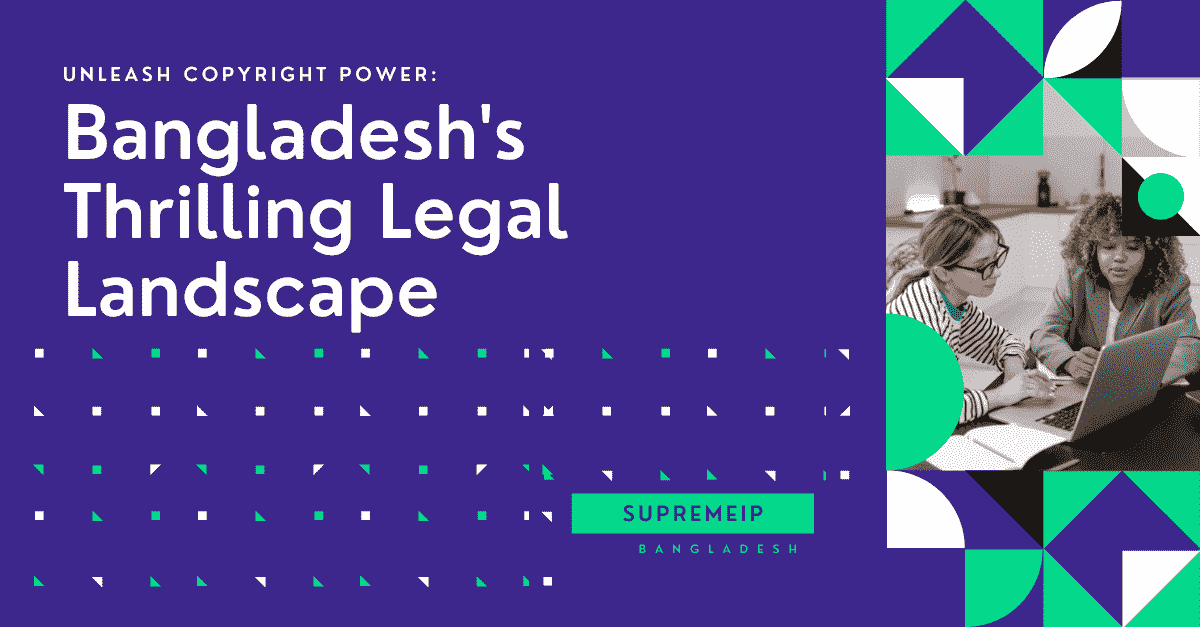[email protected]
+8801613336333 (WhatsApp Only)
Copyright protection covers expressions of ideas rather than the ideas themselves. Under section 15 of the 2000 Act, copyright protection is conferred on original literary works, dramatic works, musical works, artistic works, cinematograph films, and sound recordings. It also extends to computer programs.
+88 0161 333 6 333 | [email protected]
Copyright is one of the sub-divisions of intellectual property law. It is a group of exclusive monopoly rights given by the Copyright Law to the owner or creators or authors of the following works: literary (including computer programs); dramatic; musical; artistic works and producers of cinematograph films and sound recordings.
Copyright also indicates the exclusive right to reproduce or authorize others to reproduce artistic, dramatic, literary, or musical works. It means the exclusive right to apply a design to any article in any class in which the design is registered.6 Further, copyright of a work is the exclusive right to multiply copies of the work, not merely the right to do so in common with others.
In the Act of 2000, copyright means any rights to do or authorize the doing of any of the concerned acts in respect of a work thereof, namely:
i. Literary, dramatic, or musical work except for a computer program: Reproducing the work in any material form, issuing copies of the work to the public, performing the work in the public, producing, reproducing, performing, or publishing any translation of the work, broadcasting of the work or making any adaptation of the work;
ii. Computer program: Doing any of the acts mentioned in the preceding paragraph and selling or giving on hire, or offering for sale or hiring any copy of the computer program;
iii. Artistic work: Reproducing the work in any material form, publicizing the work to the public, issuing copies of the work to the public, including the work in any cinematograph film, broadcasting of the work, or making any adaptation of the work, etc.;
iv. Cinematograph film: Making a copy of the work, including a photograph of any image forming part thereof in VCP, VCR, DVD, or any other form, or selling or giving on hire, or offering for sale or hiring any copy of the film in VCP, VCR, DVD or any other form and publicizing and displaying among general public any auditory or visual copy of the film in VCP, VCR, DVD or any other form; and
v. Sound recording: Making any other sound recording embodying it, selling or giving on hire, offering for sale or hiring any copy of the sound recording, communicating the sound recording to the public, etc.
Copyright refers to a bundle of exclusive rights vested in the copyright owner. These rights can be exercised only by the owner of the copyright or by any other person who is duly authorized by license in this regard by the owner of the copyright. These rights include the right of adaptation, reproduction, publication, right to make translations, communication to the public, etc.
What are the conditions for Getting Copyright Protection in Bangladesh?
Copyright comes into existence as soon as a work is created, and no convention is required to be completed to acquire such a monopoly right under the Act of 2000. However, facilities exist to have the work registered in the Register of Copyrights maintained in the Copyright Office under the Ministry of Culture Affairs. The certificate issued by the Registrar of Copyright under observing the prima-facie evidence of copyright ownership. The Copyright Office has been set up to provide registration facilities for all types of works and is headed by a Registrar of Copyright. To get a copyright, the owner has to show that the work is original; it is immaterial, whether the work is wise or foolish, accurate or inaccurate, or whether it has or has not any literary merit. To qualify for copyrights, the works, apart from being original, should:
In the case of published work, it has to be published first in Bangladesh. Still, if it is first published30 in a foreign country, the author must be a citizen of Bangladesh or domiciled in Bangladesh at the date of publication or where the author is dead at the time of publication. The work is published after his death; the author must be a citizen of Bangladesh or domicile in Bangladesh at the time of his death. It is important to note that if any work is published in Bangladesh and any other country simultaneously, it should be considered first published in Bangladesh. The work shall be deemed to be simultaneously published if the difference of days between the publication in Bangladesh and publication in any:
In the case of unpublished work, the author is on the date of making the work a citizen of Bangladesh or domicile in Bangladesh. This does not apply to works of architecture.
In the case of cinematographic work, the office or residence of the produce must be in Bangladesh at the time of making the work, and the office or residence of the producer must be in Bangladesh at the time of making the whole or substantial part of the work.
Any architectural or artistic work must be located in Bangladesh.
Copyrights differ from patents and trademarks in what ways?
Patents protect inventions or discoveries, while copyrights protect original works with copyright registration services.
How do trademarks differ from copyrights?
Copyright registration protects original works of authorship, while patents protect inventions. Copyright law does not protect the way in which ideas and discoveries are expressed. The mark identifies the source of goods or services of a party and distinguishes them from those of others through words, phrases, symbols, or designs.
 December 21, 2019 - BY Admin
December 21, 2019 - BY Admin